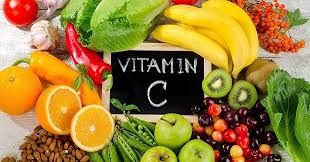
Despite Vitamin C being one of the most talked-about nutrients, most of us are not fully aware of just how essential this vitamin really is. More than just a benefit of oranges or a helpful tool for getting over a cold, trust me when I say it’s worth giving this powerful nutrient a closer look.
Vitamin C also goes by the name ascorbic acid. It’s a water-soluble vitamin, meaning it’s sensitive to heat and light, but once its digested, it acts as a powerful antioxidant to protect cells from free radical damage. In other words, Vitamin C helps counteract the negative effects of our exposure to toxins and environmental damage from UV rays, pollution, and chemical contaminants.
Another reason we need vitamin C is its integral connection to the production of collagen, a protein that helps heal wounds. It also helps the immune system work well, assists the cardiovascular system, and helps our bodies absorb iron from plant-based foods we eat. Here are some of the top benefits of this nutrient to remember:
- Protects against heart disease
- Helps the body absorb iron
- Repairs and regenerate tissues
- Decreases bad cholesterol
- Strengthens connective tissue in bones
- Boosts the immune system
- Provides antioxidant activity
- Promotes collagen production and boosts skin health and repair
Vitamin C is a vitamin that should be consumed daily, but the quantity varies between individuals. The National Institutes of Health recommends that babies under six months old get 40 milligrams per day, teenage girls get 65 milligrams per day, and teenage boys get 75 milligrams per day. The average adult man should get about 90 milligrams per day, while the average adult woman only needs 75 milligrams. The recommended vitamin C amount is increased for women who are pregnant or breastfeeding.
Not getting enough vitamin C? One of the biggest risks of developing a vitamin C deficiency is scurvy, and no, this isn’t a condition reserved only for pirates on the open sea! If you get less than 10 milligrams of vitamin C per day for many weeks in a row, you may start to experience symptoms of scurvy, including fatigue, inflamed gums, spots on the skin, wounds that don’t heal, and joint pain.
The best way to easily maintain your vitamin C levels is through a healthy diet, as opposed to supplements. And it likely comes as no surprise to you that the foods most packed with vitamin C are fruits and vegetables! All citrus fruits, like grapefruit and oranges, are famous for their vitamin C content, yet there are many other vitamin C rich foods* in the world, including:
- Broccoli
- Strawberries
- Kiwi
- Cantaloupe
- Cranberries
- Red and green peppers
*(Note that to get the most vitamin C from your fruits and vegetables, the it’s best to enjoy them raw: A significant amount of vitamin C is lost when foods are cooked or steamed, or even stored for long periods of time.)
Hands down, the top source of vitamin C in the world is camu berries, which have as much as 60 times more C per serving than an orange! Sourced from Peru, Camu Powder has more naturally occurring vitamin C than any other food, as well as antioxidants, beta-carotene, and potassium. Even better, the powder is exceptionally simple to add to all kinds of uncooked recipes, like smoothies, drinks, and sauces. You may see it as an optional ingredient listed on some of my recipes, but now you understand why it’s an option you should most definitely consider using!
The post What exactly does Vitamin C do? appeared first on JulieMorris.net.

